Today’s Current Affairs: 21st Sep 2023 for UPSC IAS exams, State PSC exams, SSC CGL, State SSC, RRB, Railways, Banking Exam & IBPS, etc
Table of Contents
Weather Information Network Data Systems (WINDS) Portal : Launched
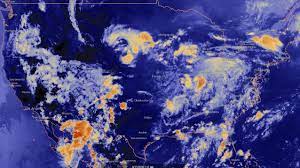
The Finance Minister recently launched the Weather Information Network Data Systems (WINDS) manual.
- The manual provides stakeholders with an in-depth understanding of the WINDS portal’s functionalities, data interpretation, and effective utilisation, empowering farmers, policymakers, and various agricultural entities to make well-informed choices.
Weather Information Network Data Systems (WINDS) portal:
- It was launched in July, 2023 by the Ministry of Agriculture and Farmers’ Welfare to leverage advanced weather data analytics to give stakeholders actionable insight to make informed weather decisions on agriculture.
- Crucial weather-related information and data will be available to the farmers through WINDS.
- The portal also shares the ministry’s parametric crop insurance scheme, along with non-scheme parametric insurance industry.
- Programmes for crop risk mitigation and disaster risk reduction and mitigation being run by the insurance industry.
- The WINDS initiative is laying emphasis on setting up a strong network of weather stations.
- Through this initiative, the target is to establish a wide network of weather stations at the block and gram panchayat level.
- This extensive network of weather stations will enable accurate monitoring of weather patterns, effective planning, risk assessment and timely response to meteorological challenges.
- The goal is to bridge the gap in weather information availability and empower decision makers, farmers and stakeholders at the grassroots level.
Brucella canis:
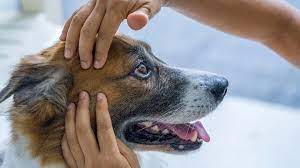
Three British citizens have been recently infected with Brucella canis, an incurable dog disease previously unknown in UK canines.
- Brucella canis is an infectious disease caused by the bacteria Brucella canis.
- It is highly contagious between dogs.
- It can cause infertility, mobility issues, and discomfort in affected dogs.
- Different species of Brucella infect sheep, goats, cattle, deer, elk, pigs, and other animals.
- Dogs typically contract Brucella canis through contact with infected body fluids, such as urine, vaginal discharge, or reproductive fluids, from other infected dogs.
- It can be transmitted to humans through contact with infected bodily fluids.
- It can manifest in various ways and may include symptoms such as lethargy, fever, swollen lymph nodes, reproductive problems (such as infertility and spontaneous abortion in females), joint pain, and testicular swelling in males.
- In dogs, the disease is untreatable, and government guidelines advocate for euthanasia as the recommended course of action.
- Infected dogs are typically isolated to prevent further spread of the disease.
- Antibiotics may be prescribed to manage symptoms and reduce the bacterial load.
- However, for humans, effective treatment is available through an extended regimen of antibiotics.
Dhruvastra Missile:
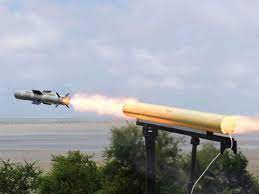
India’s Defence Acquisition Council (DAC) recently gave the green light to several capital acquisition proposals, including the indigenous Dhruvastra short-range air-to-surface missile.
- It is a helicopter-launched anti-tank guided missile (ATGM) system.
- It is a short-range air-to-surface missile.
- It was indigenously developed by the Defence Research and Development Organisation (DRDO).
- Dhruvastra is the Air Force’s version of Helina (Helicopter-launched Nag missile) ATGM.
- It is equipped with Imaging Infrared (IIR) seeker and operates in “lock on before launch” mode.
- The fire and forget missile has a minimum range of 500 metres and a maximum range of 7 kilometres.
- It can be launched from an altitude of up to 4 kilometres and can hit targets moving at speeds of up to 70 kilometres per hour.
- The missile can engage targets both in direct hit mode as well as top attack mode.
- It works in all kinds of weather, during the day or night, and in various types of terrain, such as deserts, plains, hills and forests.
Vanadium:
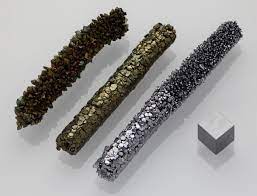
Vanadium, a critical raw material for many industrial applications, has been found recently in sediment samples collected from the Gulf of Khambhat in Gujarat.
- Vanadium is a chemical element with the symbol “V” and atomic number 23.
- It is a silver-gray, ductile, and malleable metallic element.
- It is harder than most metals and exhibits good corrosion resistance against alkalis and acids.
- It was discovered (1801) by the Spanish mineralogist Andrés Manuel del Río, who named it erythronium but eventually came to believe it was merely impure chromium.
- The element was rediscovered (1830) by the Swedish chemist Nils Gabriel Sefström, who named it after Vanadis, the Scandinavian goddess of beauty and youth.
- The English chemist Henry Enfield Roscoe first isolated the metal in 1867 by hydrogen reduction of vanadium dichloride.
- Found combined in various minerals, coal, and petroleum, vanadium is the 22nd most abundant element in Earth’s crust.
- It is found in over 60 different minerals, including vanadinite, carnotite, roscoelite, and patronite.
- The largest resources of vanadium minerals are found in South Africa and Russia.
- Leading Producers: China, South Africa, and Russia.
Bharatkosh Portal:
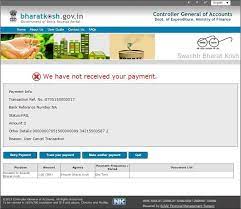
The Union Minister of Civil Aviation launched an e-wallet payment option on Bharatkosh portal.
- Bharatkosh portal is the initiative of the Controller General of Accounts, Ministry of Finance, Government of India.
- It provides one-stop services to deposit any fees/fine/other money into the government’s account.
- It converges all the Civil Ministries/Departments of the Government of India.
- It aims to provide 24X7 year-round electronic services to deposit money into Government account using internet-based payment technologies to the users at the door step through the web-based portal.
- It thus leverages the e-Governance commitment of the Government to provide e-efficient, e-effective, e-excellent government anywhere anytime.
- The e-wallet will be particularly useful for processing of fees for various regulatory approvals in the Bharat Kosh portal.
- It acts as a prepaid wallet that would enable registered users to add funds in advance.
- Initially, only NEFT/RTGS mode will be allowed for adding funds. The users would also be able to generate receipt and challan instantly.
Nyukmadung Dairy:
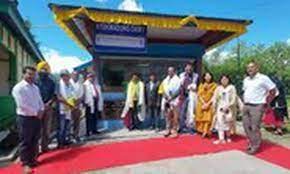
The Indian Council for Agricultural Research-National Research Centre on Yak has established a first-of-its-kind parlour for Yalk milk in Nyukmadung village, Arunachal Pradesh.
- Nyukmadung Dairy is located at the farm of the Indian Council for Agricultural Research-National Research Centre on Yak.
- The farm in the West Kameng district is about 25 km from Dirang, where the yak research centre is situated.
- Objective is to make yak farming more remunerative by making yak milk and its diverse derivatives popular.
- The yak (Poephagus grunniens) is the lifeline of highland ethnic communities living in the Himalayan and trans-Himalayan regions.
- It is found on the heights of Arunachal Pradesh, Sikkim, Himachal Pradesh, and Ladakh.
- The animal sustains the livelihood of the highlanders by yielding milk, meat, fibre, hide, and dung apart from being used for transportation.
- Yak milk and milk products are the integral components of the diet of these highland communities thriving in an extremely hypoxic and harsh environment without vitamin and mineral supplements.
- Yak milk is creamy white, thick, sweetish, fragrant, and richer in protein, fat, lactose, minerals, and total solids than cow milk.
Liptako-Gourma Charter:
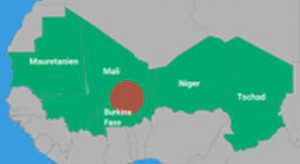
The military leaders of Mali, Burkina Faso, and Niger signed a mutual defence pact, the Liptako-Gourma Charter, in Mali’s capital, Bamako.
- Liptako-Gourma Charter establishes the Alliance of Sahel States (AES).
- Its aim is to “establish an architecture of collective defence and mutual assistance for the benefit of the population.
- This alliance will be a combination of military and economic efforts between the three countries.
- The charter binds the signatories to assist one another, including militarily — in the event of an attack on any one of them.
- It also binds the three countries to work to prevent or settle armed rebellions.
- Liptako-Gourma region is the region where the Mali, Burkina Faso, and Niger borders meet.
- It has been ravaged by jihadist insurgency in recent years.
- The junta leaders of Mali, Burkina Faso and Niger signed a charter to establish a defence alliance known as the Alliance of Sahel States.
- Under this alliance, any attack on one or more signatory states will be considered an attack on all signatories.
- The alliance between three West African states, all ruled by military juntas and former French colonies.
Narmada River : Flood

Severe rains in Gujarat caused the Narmada River to flood, displacing thousands. Some blame the Sardar Sarovar Dam operators for their delayed actions.
- The Sardar Sarovar Damis a concrete gravity dam built on the Narmada River in Navagam near the town of Kevadiya, Narmada District, in the state of Gujarat.
- The dam was constructed to provide water and electricity to four Indian states: Gujarat, Madhya Pradesh, Maharashtra, and Rajasthan
- The Narmada is the largest west-flowing river, the fifth-largest in India, flowing through Madhya Pradesh, Maharashtra, and Gujarat before reaching the Gulf of Cambay.
- It is situated between the Vindhya and Satpura Ranges.
- Notable dams in the Narmada Basin include the Sardar Sarovar Dam, Rani Avanti Bai Sagar (Bargi) Dam, and Maheshwar Dam.
UNCITRAL South Asia Conference:
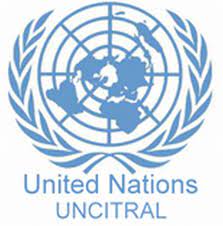
India hosted the inaugural United Nations Commission on International Trade Law (UNCITRAL) South Asia Conference recently.
- The conference aimed to strengthen India’s engagement with UNCITRAL and encourage interaction between UNCITRAL, the judiciary, bureaucracy, academia, and the legal fraternity.
- It was organized jointly by the Ministry of External Affairs, UNCITRAL, and the organization’s national coordination committee for India.
- The conference covered various topics, including the digital economy, MSMEs and access to credit, insolvency, investor-state dispute settlement reform, international commercial arbitration, and mediation.
- The event also highlighted India’s potential as a hub for international arbitration.
UNCITRAL:
- It stands for the United Nations Commission on International Trade Law.
- It is the principal legal entity within the United Nations system dedicated to international trade law.
- UNCITRAL is a legal body with universal membership that specializes in commercial law reform worldwide.
- It has been working for over 50 years to modernize and harmonize rules on international business.
- UNCITRAL’s primary goal is to facilitate international trade by creating legal frameworks and instruments that promote fairness, transparency, and efficiency in cross-border commercial transactions.
What Is Biohacking?

Biohacking has gained more attention and popularity in recent years, it is the practice of modifying or enhancing one’s own body or biology using various methods, such as diet, supplements, devices, implants, or genetic engineering.
- Biohacking can have different goals, such as improving health, performance, well-being, or appearance, or exploring the limits and possibilities of human nature.
- The most well-known type of biohacking is genetic engineering, where individuals experiment with new technologies to enhance their physical appearance or capabilities.
- However, biohacking also raises ethical and safety concerns, particularly when individuals engage in risky or unproven procedures.




